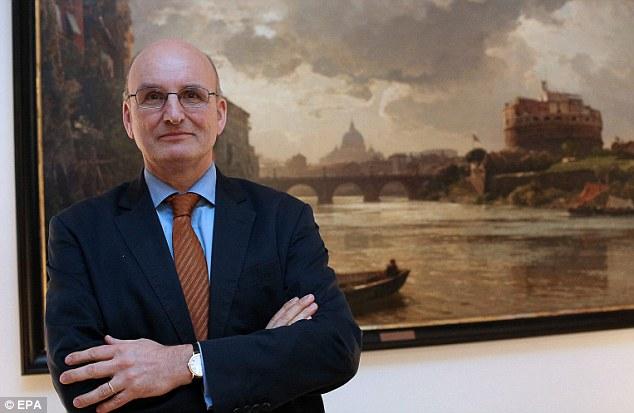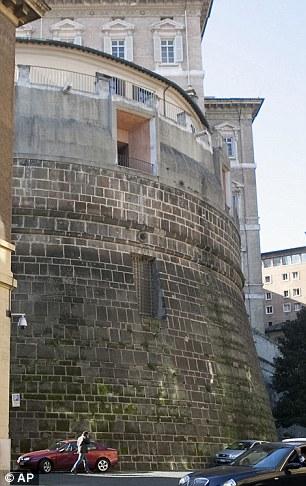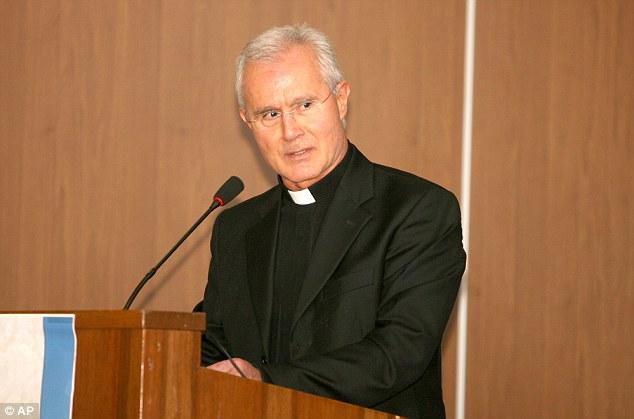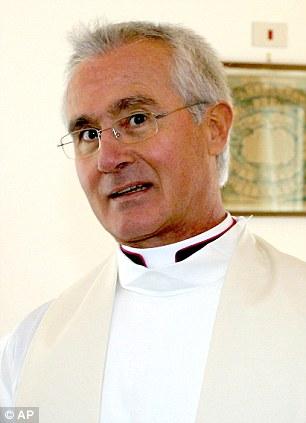Director of Vatican Bank Resigns Amid Fears It Was Used As an Offshore Tax Haven
Daily Mail UK
The director of the embattled Vatican bank and his deputy have resigned over a financial scandal which has already landed one monsignor in prison. Paolo Cipriani and his deputy, Massimo Tulli, stepped down 'in the best interest of the institute and the Holy See', The Vatican has said. The speed with which they resigned, however, indicated that the decision was not entirely theirs. Cipriani, along with the bank's then-president, was placed under investigation in 2010 for alleged violations of Italy's anti-money-laundering rules after financial police seized €23million (£19.7m) from a Vatican account at a Rome bank. Neither has been charged and the money was eventually ordered released. But the bank, known as the Institute for Religious Works, or IOR, has remained under the watchful eye of prosecutors amid fresh concerns it has been used as an offshore tax haven. It was the latest turmoil to hit the IOR, which has long been the source of scandal for the Holy See. Last year, the bank's board ousted its then-president, Ettore Gotti Tedeschi, for incompetence and erratic behavior. Yesterday's resignations and nominations of interim administrators represented a final overthrow of the bank's old guard management and coincided with its efforts to comply with international regulations to fight money-laundering and terror financing. The resignations came just days after Pope Francis announced an inquiry into the bank and followed the arrest of a Vatican accountant caught up in a criminal investigation into the IOR. Monsignor Nunzio Scarano is accused by Rome prosecutors of corruption and slander in connection with a plot to smuggle €20 million (£17.1 million) into Italy from Switzerland without reporting it to customs officials. Scarano, dubbed 'Don 500' by the Italian media because of his purported favorite euro banknote, acknowledged under questioning Monday that his behavior was wrong but that he was only trying to help out friends, his attorney Silverio Sica told Associated Press. According to wiretapped phone conversations, Scarano was in touch regularly with both Cipriani and Tulli to get the required bank approval to move large amounts of cash into and out of his IOR accounts. Scarano had two such accounts - a personal one and one called 'Fondo Anziani' to receive charitable donations for projects to help the elderly, prosecutors say. In addition to his Rome arrest, Scarano is also under investigation in the southern city of Salerno for alleged money-laundering stemming from a €560,000 cash withdrawal he made from his IOR charity account in 2009. Sica, the attorney, has said Scarano arranged complicated transactions with dozens of other people and eventually used the money to pay off a mortgage. The group of five cardinals who oversee the IOR accepted the resignations of Cipriani and Tulli and tapped the IOR's current president, German financier and aristocrat Ernst von Freyberg, to serve as interim director, a Vatican statement said. Von Freyberg, who was named IOR president in February, thanked Cipriani and Tulli for their years of work and said much progress has been made in recent years to bring greater transparency to the Vatican's finances. 'While we are grateful for what has been achieved, it is clear today that we need new leadership to increase the pace of this transformation process,' von Freyberg said in a statement. The IOR has in the past three years undergone tumultuous changes as it tries to adhere to international norms to fight money laundering and terror financing - changes that apparently didn't always sit well with the old guard, who had long-standing relations with their clients. Italian banker Rolando Marranci was named as acting deputy and another banking expert, Antonio Montaresi, was brought into a new position as chief risk officer to help ensure the IOR complies with anti-money laundering and anti-terrorism norms. Both belong to the Promontory Group, an expert in the field of anti-money laundering which has been retained by the IOR to help it comply with international norms. The IOR's board has begun the process of finding a permanent director and deputy director, the statement said. It wasn't immediately clear how von Freyberg would handle his new role essentially running the IOR's day-to-day operations as director, while also retaining his oversight role as president and member of the bank's board. It also wasn't clear how the new management team of Promontory executives would be able to act independently from the other more senior Promontory officials who remain as advisers to the IOR. The Vatican bank was founded in 1942 by Pope Pius XII to manage assets destined for religious or charitable works. Located in a tower just inside the gates of Vatican City, it isn't open to the public - only to Vatican employees, religious orders and diplomats accredited to the Holy See. Last week, Francis announced a commission of inquiry into the bank's activities and legal status to ensure it is in 'harmony' with the Catholic Church's mission. It's part of his overall effort to reform the Vatican bureaucracy, mandated by the cardinals who elected him pope in March. The reason for concern about the IOR is well-founded as the bank has long been the source of some of the greatest scandals of the Holy See, famously implicated in a scandal over the collapse of the Banco Ambrosiano in the 1980s, in one of Italy's largest fraud cases. Roberto Calvi, the head of Banco Ambrosiano, was found hanging from Blackfriars Bridge in London in 1982 in circumstances that still remain mysterious. Banco Ambrosiano collapsed following the disappearance of $1.3 billion in loans the bank had made to several dummy companies in Latin America. The Vatican had provided letters of credit for the loans. While denying any wrongdoing, the Vatican bank agreed to pay $250 million to Ambrosiano's creditors. The late Archbishop Paul Marcinkus, an American prelate who headed the Vatican bank at the time, was charged as an accessory to fraudulent bankruptcy in the scandal, but Italy's Constitutional Court eventually backed the Vatican in ruling that under Vatican-Italian treaties Marcinkus had immunity from Italian prosecution. Marcinkus long asserted his innocence and died in 2006.
|
.
Any original material on these pages is copyright © BishopAccountability.org 2004. Reproduce freely with attribution.



